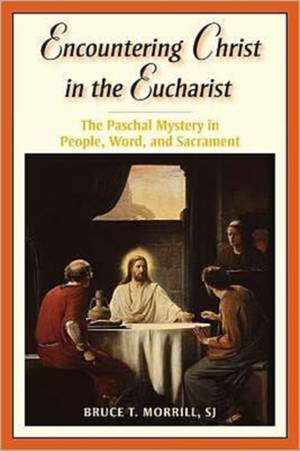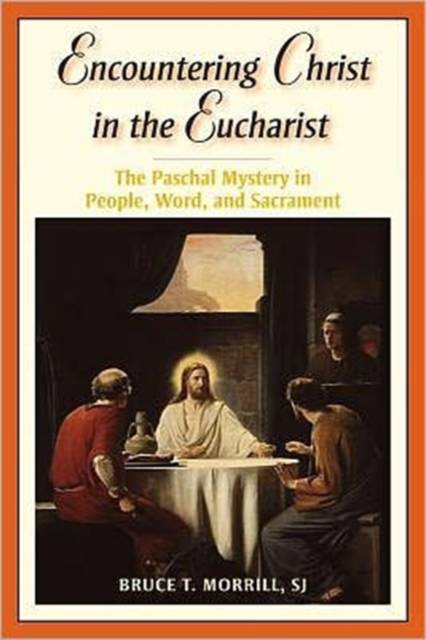
- Retrait gratuit dans votre magasin Club
- 7.000.000 titres dans notre catalogue
- Payer en toute sécurité
- Toujours un magasin près de chez vous
- Retrait gratuit dans votre magasin Club
- 7.000.0000 titres dans notre catalogue
- Payer en toute sécurité
- Toujours un magasin près de chez vous
Encountering Christ in the Eucharist
The Paschal Mystery in People, Word, and Sacrament
Bruce T Morrill
Livre broché | Anglais
19,95 €
+ 39 points
Description
If changes in the church's liturgical practice were the most obvious development of Vatican II to be noticed by the faithful in the pew, then inevitably, shifts in eucharistic theology were not far behind. The previous focus on Christ's presence in the sacrament itself under the species of bread and wine and the attendant forms of worship that this spawned have gradually yielded to deepening insights into the manifold ways in which Christ is present among the faithful. Drawing upon the best of recent biblical, historical, and theological sources, Bruce Morrill unfolds how the divine Spirit of Jesus works through ways Christ is present in the celebration of the Eucharist--in the assembly, presiding minister, biblical word, and ritual sacrament. Mindful of challenges inherent in eucharistic theologies within and among church traditions and communities, Morrill orients his theology on two key principles from Vatican II's Constitution on the Sacred Liturgy: the celebration of the liturgy as participation in the paschal mystery, and the multiple bodily, symbolic ways Christ is present in the ritual celebration. In the process, he sheds new light on such topics as sacrifice, covenant, divine presence and absence, and the tradition's relationship to Judaism. There are some challenging implications here, not least to the modern tendency to think of liturgy in terms of a personal transaction--"what I got out of it"--and to those who hear God's word only according to their own preconceived ideas: "God's is not a reign limited to our personal histories," Morrill points out, "but, rather, is one that calls us to hear our story as part of one much larger, at times comforting, at others confronting us." Morrill eloquently invokes these human modes of Christ's presence to draw participants into the mystery of the cross and resurrection, into communion with the God whose love for humanity has been revealed unto death, making the Eucharist the source and summit for lives shaped in the pattern of Christ's justice and mercy for the life of the world. +
Spécifications
Parties prenantes
- Auteur(s) :
- Editeur:
Contenu
- Nombre de pages :
- 144
- Langue:
- Anglais
Caractéristiques
- EAN:
- 9780809147687
- Date de parution :
- 02-07-12
- Format:
- Livre broché
- Format numérique:
- Trade paperback (VS)
- Dimensions :
- 150 mm x 229 mm
- Poids :
- 181 g

Les avis
Nous publions uniquement les avis qui respectent les conditions requises. Consultez nos conditions pour les avis.






